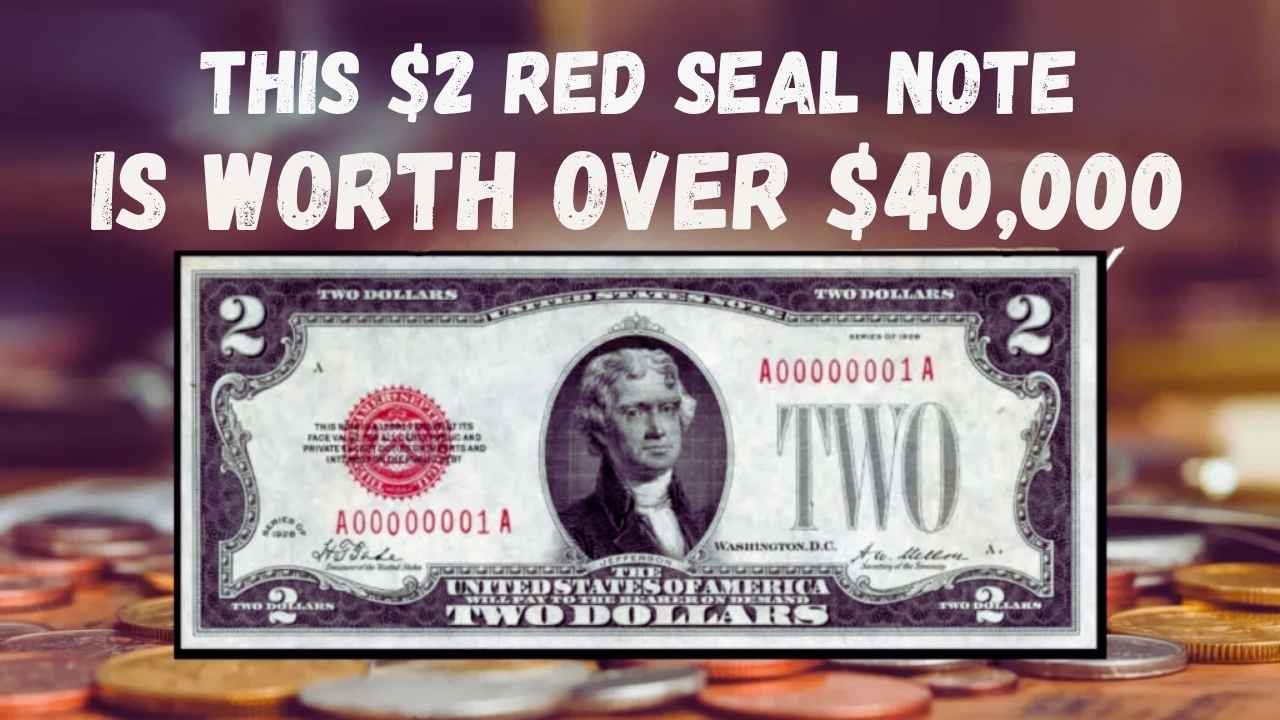A Lucky Find Changes Everything
A routine thrift store visit turned into a jaw-dropping moment when a shopper found a $2 bill tucked inside a used book. This wasn’t just any bill—it’s a rare 1890 Grand Watermelon, valued at up to $950,000. Collectors say these bills, prized for their unique look and scarcity, could still be hiding in everyday places like old books, wallets, or even your loose change. This incredible discovery shows that a small find can lead to a massive payday.
Why This Bill Is Worth a Fortune
The 1890 Grand Watermelon $2 bill gets its name from the large, green zeros on the back that resemble watermelons. Only a handful were printed, and even fewer survive today in good condition. Auction records from 2024 show one sold for $950,000, according to the Professional Coin Grading Service. Its bold red seal and detailed design make it a standout compared to modern $2 bills. Collectors love it for its rarity and historical value, which drives its price through the roof.
Spotting the Valuable Bill
You don’t need to be an expert to identify a Grand Watermelon bill. Here’s what to look for:
- Check the date: It should say “1890” on the front.
- Look for a large red seal near the portrait.
- Examine the back for green, watermelon-like zeros.
- Note the serial number, starting with a letter and followed by numbers.
If your bill matches these features and looks clean with sharp edges, it could be worth thousands, even if it’s not perfect.
Where These Bills Might Be Hiding
This thrift store find isn’t a one-off. Rare $2 bills have popped up in old photo albums, cash drawers, or as bookmarks, just like this one. Since $2 bills are still legal money, they can circulate in stores or turn up at yard sales. Check places where old items gather dust, like antique shops or your grandparents’ attic. One collector found a similar bill in a stack of papers at an estate sale, proving these treasures are still out there waiting to be found.
Steps to Protect Your Find
If you think you’ve got a Grand Watermelon, take care to preserve its value:
| Step | Action |
|---|---|
| 1. Store Carefully | Put the bill in a protective sleeve to avoid damage. |
| 2. Get It Checked | Bring it to a currency dealer or auction house for appraisal. |
Don’t bend or clean the bill, as that can lower its worth. A professional will verify if it’s real and tell you what it’s worth.
The Excitement of Currency Hunting
This $2 bill discovery has fueled a wave of interest in collecting rare money. Other bills, like $1 notes with unique serial numbers or certain $5 bills, have also sold for big bucks. The thrill of finding a valuable piece of currency keeps people checking their change or digging through thrift store bins. Whether you’re flipping through old books or sorting through loose cash, that $2 bill in your hand might just be a life-changing treasure.
| Rare Bill | Estimated Value |
|---|---|
| 1890 $2 Grand Watermelon | Up to $950,000 |
| 1890 $1 Treasury Note | $100,000–$500,000 |
